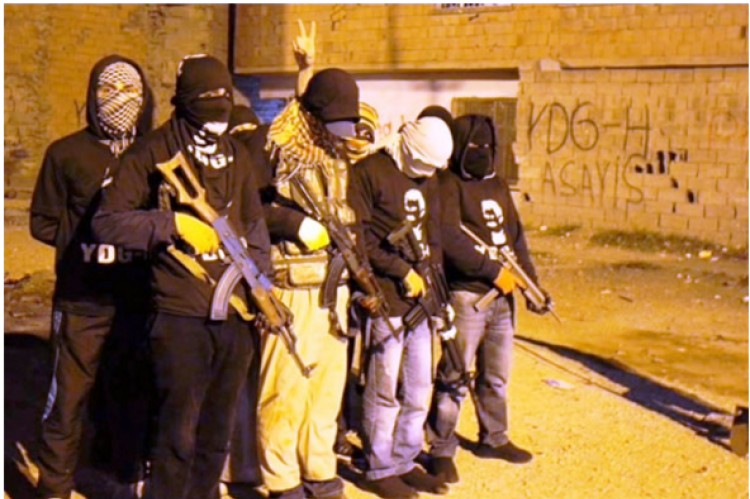Claim: Turkey’s battle with PKK guise for political system shift
Al-Monitor columnist Kadri Gursel says Turkey’s current battle against PKK militants being waged to push forward presidential system
On 2 February 2016, Al-Monitor’s Kadri Gursel published an article about the ongoing conflict between the Turkish Armed Forces and the PKK (Kurdistan Workers’ Party) terrorist group in which he claimed that “the battle is not being waged to solve the Kurdish issue; it is being waged to gain a presidential system.”1
According to Gursel, a war was launched on 24 July 2015 against the PKK because Turkey’s President Recep Tayyip Erdogan needs the votes of nationalists to change the current political system of Turkey.
However, the current war against the PKK did not come about all of a sudden, as four days before 24 July 2015, Cemil Bayik, one of the five founders of the PKK, called for taking up arms and digging tunnels against the Turkish state. Two Turkish soldiers were subsequently murdered on 22 July 2015 while asleep at home. The following day, a PKK attack claimed the life of a civilian. The PKK claimed the victim was a member of the DAESH terrorist group, although there was no evidence to support this claim.
Turkey’s Kurdish issue and the resolution process
The Kurdish issue in Turkey goes back almost a hundred years, when the Republic of Turkey took the place of the Ottoman Empire in 1923, long before the shift to a presidential system was an issue. Since then, the relationship between the Kurdish people and the state has been tense, especially after the PKK was established in 1978 with the aim of establishing its Marxist-Leninist ideology in Turkey’s southeast. Up until the 2000s, the PKK was considered to be a matter of national security, rather than a sociological and political one, and it caused the deaths of almost 40,000 people in the country.
After the 2002 elections were won by the ruling Justice and Development Party (AKP), which was at the time led by the Turkey’s current president Recep Tayyip Erdogan, the perspective towards the Kurdish issue shifted.
The 51-year-old state of emergency in the Kurdish dominated areas was lifted in 2002 after Erdogan’s election as prime minister, and senior Kurdish political leaders were freed from prison. Television programmes in Kurdish started broadcasting on the state-run channel TRT 3 and many other steps were taken to solve the problem, including the recognition of Kurdish identity and language. In 2009, then-president Abdullah Gul said “positive steps will be taken about the Kurdish issue in the forthcoming days.” Erdogan, who was at the time serving as prime minister, said “our national solidarity and brotherhood is a goal” regarding the Kurdish issue.2
In 2010, then-interior minister Besir Atalay revealed the “Civil Rights Package.” Consequently, the Institute of Living Languages was established. One of the leading Kurdish books, “Mem ü Zin,” was published by the Culture and Tourism Ministry.3 But in the same year, the PKK organized an attack on the AKP’s establishment in the southeastern city of Diyarbakir.
While the Turkish government has been pushing for a peaceful solution to the crisis, the PKK set up the YDG-H (the Patriotic Revolutionary Youth Movement) in 2013 shortly after the peace process began in the same year.
In July 2015, the Kurdistan Community Unions (KCK), an umbrella organisation including the PKK, threatened to attack dams constructions in the southeastern provinces of Turkey that would affect their ability to move and mobilise militants for operations. Civilian workers were also threatened.
On 21 September 2015, the KCK carried out attacks on the dams, causing nearly 730 million dollars in damages.4
- 1. http://www.al-monitor.com/pulse/originals/2016/02/turkey-erdogan-kurds-p...
- 2. http://www.milliyet.com.tr/basbakan-erdogan--milli-birlik-projesi-bir hedeftir/siyaset/siyasetdetay/15.11.2009/1162249/default.htm
- 3. http://timelineturkey.com/en/kurdish-society/
- 4. http://www.worldbulletin.net/news/164488/pkk-threatens-dam-projects-in-s...



